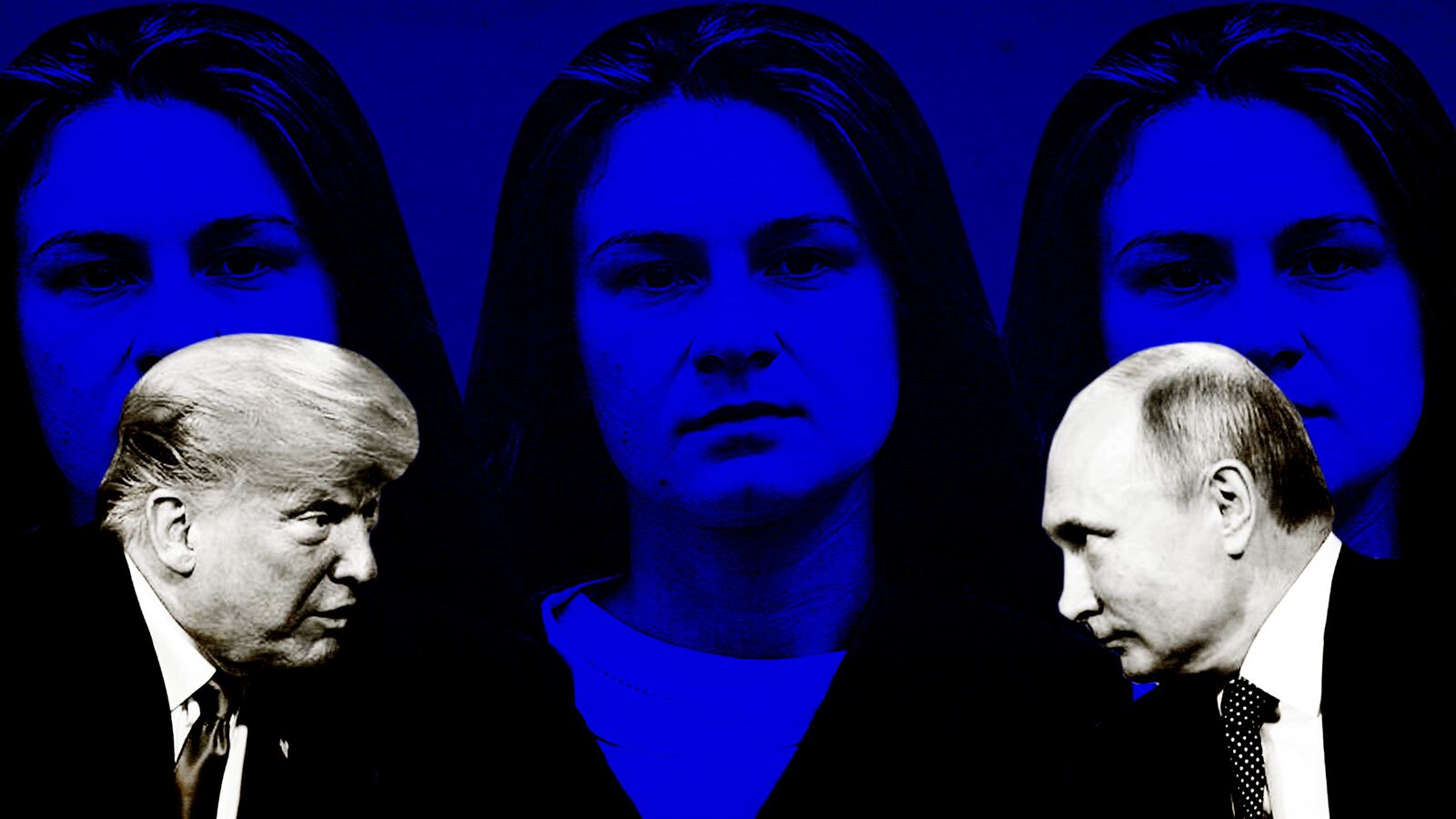Russia says it arrested a U.S. citizen spying in their country. But former CIA officers say that, far from a counterintelligence coup, the American’s detention is most likely payback for the U.S. arrest of confessed Russian agent Maria Butina.
In a short statement Monday, Russia’s Tass news agency said authorities arrested American Paul Whelan “in Moscow while on a spy mission” and that he faces a sentence of up to 20 years in prison if convicted. A State Department spokesperson said the department has been “formally notified of the detention” and has requested access to Whelan.
"This wasn't planned yesterday. It was probably planned back after [Butina] was arrested," Dan Hoffman, a former Moscow station chief for the CIA, told The Daily Beast. “They want to deter future U.S. actions against other private citizens."
Butina pleaded guilty last month to conspiring to act as an unregistered agent for Moscow and signed a broad cooperation agreement with the Justice Department. Prosecutors said she tried to build a backchannel between Kremlin officials and Republican operatives during the 2016 presidential campaign. Russian officials have lodged a number of protests with the State Department about the conditions of her detention (she’s spent weeks in solitary confinement), and President Vladimir Putin said his intelligence services had no association with her.
If the Kremlin has detained Whelan as tit-for-tat in response to Butina’s arrest, then they could use her treatment to justify their treatment of Whelan. In September, the DOJ lawyers prosecuting Butina cited the Russian consulates’ interest in her case as reason to keep her in jail before her trial.
“Since the detention hearing in this case, the actions of the Russian Federation and its officials toward the defendant have confirmed her relationship with, and value to, her own government,” they wrote. “To date, the Russian government has conducted six consular visits with the defendant.”
DOJ lawyers also noted that Russia’s foreign minister had spoken twice to Mike Pompeo, the U.S. Secretary of State, about Butina’s case and that the Kremlin had issued more diplomatic notes on her behalf than for other Russians imprisoned in the U.S. Lawyers concluded that her flight risk was “not hypothetical.”
Hoffman said the incident may serve a domestic purpose for the Kremlin.
"Vladimir Putin is delivering a message to his own people: Russia is a besieged fortress, there's espionage everywhere—I'm the only one who can defend us,” Hoffman said.
Indeed, a lawmaker from Russia’s Duma called for authorities to arrest Americans in retaliation.
John Sipher, a former CIA officer who served in Russia, said it’s “highly unlikely that [Whelan] is associated with U.S. intelligence” because of the risks involved. “From my experience we would almost never send someone to Russia without diplomatic immunity. Given the laxity of Russian laws and the aggressiveness of their espionage apparatus, we could not guarantee the safety of someone traveling under unofficial cover.”
Russia’s definition of espionage is “extremely flexible and covers all sorts of things that we would not consider illegal in any way,” Sipher added.
Russia has previously arrested U.S. citizens as leverage against the detention of Russian spies in America. For instance, in 1986 the KGB arrested reporter Nicholas Daniloff in the Soviet Union three days after the FBI arrested of Gennadi Zakharov, an alleged intelligence officer and employee of the Soviet U.N. mission in New York.
Federal agents busted Zakharov after he allegedly handed over money to a Guyanese contact for classified U.S. Air Force documents. Daniloff wrote in a subsequent memoir that he knew immediately after the KGB planted maps marked “Secret” on him via a Russian friend that he would end up a hostage for Zakharov’s release. His thinking was prescient—the Reagan administration arranged a swap for him that shortly thereafter.
Sipher said this is exactly the situation the U.S. would try to avoid.
“We would never leave a real intelligence officer vulnerable to arrest, and give Putin a weapon to trade for someone like Ames, Hanssen or Butina,” he said.
But while there's precedent, it's not how Russia usually handles spies, says former CIA Russia chief Steve Hall. “They pick up a foreign diplomat, and accuse them correctly or incorrectly of being an intelligence officer, sometimes detain them, but they are always released and usually declared persona non grata and thrown out of the country,” he said in an interview Monday. Sometimes, they accuse a foreign businessman or academic of spying or other malfeasance as a negotiating tactic to get sensitive information or a better business deal for the Russian government. But this came with a legal charge of espionage and incarceration.
That’s why he thinks this is about revenge for the FBI arrest of Butina.
“The Russians are huge on reciprocity. If you are going to do something to us, we’ll do it to you,” Hall said. “That’s my assessment of what’s happening in this case.”
The arrest comes amid an intensifying spy war between Russia and the West following Moscow’s meddling in the 2016 election and its annexation of Crimea in 2014.
The Trump administration has sanctioned a number of personnel from Russia’s Main Intelligence Department (GRU) and Federal Security Service (FSB) for spreading disinformation during the 2016 election, hacking Democratic emails, and launching cyber attacks. After Russian GRU officers allegedly tried to assassinate a defector in England with a nerve agent , at least 20 Western countries expelled Russian diplomats in solidarity with the United Kingdom.
Russia responded by booting 60 American diplomats and closing down a U.S. consulate in St. Petersburg.









